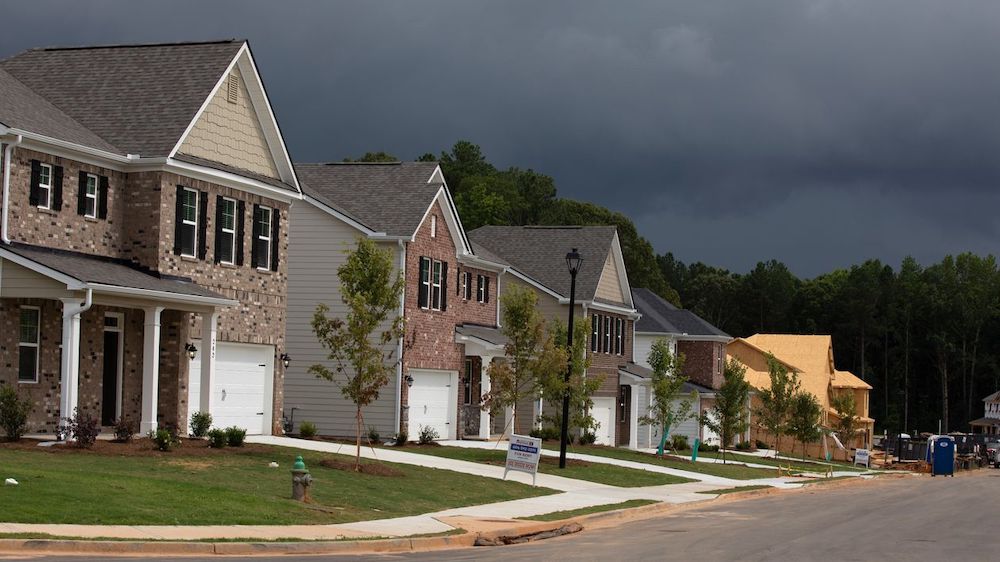
Dustin Chambers for The Wall Street Journal
Americans with mortgages have accumulated nearly $10 trillion in home equity thanks to a decade of rising home prices. Yet millions of them have fallen behind on mortgage payments and risk losing their houses.
It is a potential bonanza for rental-home investors. Since the coronavirus pandemic began, big single-family landlords have raised billions of dollars for homebuying sprees.
Even if there isn’t a surge in repossessed homes to buy cheaply off the courthouse steps—which led to the emergence of Wall Street’s landlords during the foreclosure crisis a decade ago—there is likely to be a lot of forced sales and new renters.
“A lot of people are house-rich but cash-poor,” said Ivy Zelman, chief executive of real-estate consultant Zelman & Associates. “If they bought in the last two or three years, even if they bought five months ago, they have equity.”
Having plenty of home equity but reduced means to keep making payments could prompt many to sell while prices are high and exit homeownership with a cash cushion, Ms. Zelman said.
People behind on their payments aren’t being kicked out of their houses yet because of federal and local restrictions on foreclosure enacted during the pandemic. Many with federally guaranteed mortgages have entered forbearance, which allows them to skip payments for up to a year without penalty and make them up later.
Some 3.5 million home loans—a 7.01% share—were in forbearance as of Sept. 6, according to the Mortgage Bankers Association. Many more borrowers are behind on their payments but not in forbearance programs with their lenders.
Meanwhile, bidding wars are breaking out for suburban homes hitting the market.
Millennials coming of age have been enticed by historically low mortgage rates. Other house hunters are leaving city centers and apartments, seeking room for home offices and space between them and their neighbors. And then there are investors, a mix of individuals and investment firms that have been buying more than one in every 10 homes sold in the U.S. over the past decade.
The most house-hungry of these investors are the rental companies formed a decade ago to gobble up foreclosed homes by the thousands. They were expanding before the pandemic, wagering on a permanent suburban rental class. The economic distress brought by the lockdown has only made investors more excited about such companies’ prospects.
So far these companies have reported record occupancy, on-time rent collection on par with historical averages and rising rents. Shares of the two largest landlords, Invitation Homes Inc. and American Homes 4 Rent, are up 79% and 59%, respectively, since stocks bottomed on March 23. The S&P 500 is up about 50% during that time.
Investors have bought nearly $900 million of new shares sold by the two largest rental companies since the pandemic began. Other home-rental operations have also sold nearly $6 billion of rent-backed bonds, including three deals presently in the market, according to Akshay Maheshwari of Kroll Bond Rating Agency.
Beyond that, investment firms Blackstone Group Inc., Koch Industries Inc., J.P. Morgan Asset Management and Brookfield Asset Management Inc. have each made nine-figure investments in single-family rental companies eyeing expansion.
American Homes 4 Rent, which owns about 53,000 houses, in May more than doubled the size of a home-building pact with J.P. Morgan Asset Management to $625 million and last month raised more than $400 million in a stock offering.
“We’re endeavoring to deploy that capital as quickly as possible,” Christopher Lau, American Homes 4 Rent’s finance chief, told investors at a virtual conference this week.
American Homes 4 Rent is still buying properties off the open market. But the company has focused lately on building homes expressly to rent and this summer has been one of the country’s most-active builders.
Its largest rival, Invitation Homes, hasn’t been building but it has resumed its prepandemic pace of buying about $200 million worth of homes every three months. To fund its expansion, Invitation sold about $500 million worth of new shares in June.
“We could have, quite frankly, raised a whole lot more,” Chief Executive Dallas Tanner said last week at an industry conference.
Invitation Homes said in a presentation to investors this month that it is planning a sale-leaseback program as another channel to add to its 80,000 homes. Invitation Homes executives said the plans are nascent and declined to discuss them in more detail.
Sale-leaseback transactions are common in commercial real estate and involve the owner of a property selling to investors and then renting it from the buyer.
Such arrangements would allow those who face the prospect of losing their homes to cash in on high house prices without having to move, said Jarred Kessler, chief executive of EasyKnock Inc., a startup that he said raised $25 million from venture investors in June and hundreds of millions of debt to launch a sale-leaseback program this month called ReLEASE.
The business line was originally conceived to allow homeowners to start cashing out of their homes when the market was hot or when an expense arose, but not necessarily when they wanted to move. Since starting out in 2016 the New York firm has bought $187 million worth of houses, all of which remain occupied by the sellers. Now EasyKnock has distressed borrowers in mind and is looking toward early next year, when prohibitions on foreclosure are set to expire.
“Once January comes that’s when the carnage will come,” Mr. Kessler said. “We’re just giving people choices that they never had before.”
The post Millions Are House-Rich but Cash-Poor. Wall Street Landlords Are Ready. appeared first on Real Estate News & Insights | realtor.com®.
source https://www.realtor.com/news/trends/millions-are-house-rich-but-cash-poor-wall-street-landlords-are-ready/
No comments:
Post a Comment